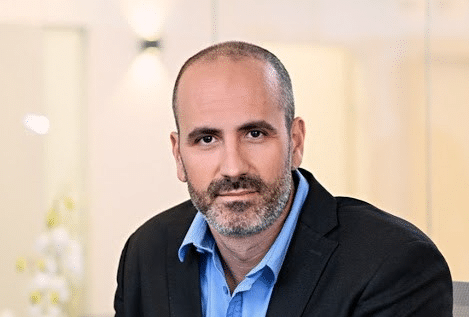Roi Mor is a 20+ high-tech veteran in the enterprise space. He started his career as a web developer creating websites in the early 2000’s. Later on he became a project manager for an Israeli startup in the integration space, working with many financial institutions, helping them modernize their legacy system to web and SOA.
In this position Roi learned the true pain financial clients have with their legacy systems, and the value of great technology to help them become more modern with better integration and web interfaces.
After the startup acquisition in 2005, Roi moved to R&D roles, leading teams and architecture at SoftwareAG for their integration platform.
He raised his strong development and architecture, and management, led a major transition to become an agile and test driven development, as part of a large organization.
In 2010, he moved to lead an R&D group in a growing startup, and built their fraud detection solutions.
In this role he built from scratch products, and an entire group responsible for delivering fraud products to large banks in NA in less than 12 months.
In 2012, Roi came up with the Openlegacy idea, in which integration should be based on open standards, developer friendly and highly automated, which led to establishing Openlegacy.
Ever since he has been building and leading the company R&D, product, presale, support, customer success groups, which grew up from 0 to 120 employees.
Roi holds a B.Sc in computer science, and is a father to 4 girls.
Where did the idea for Openlegacy come from?
I worked in the Openlegacy space (enterprise integration) for almost 10 years, and was never pleased from the simplicity and lack of standards in the tools in the market. In my fraud detection position, I built solutions from scratch using open source and code generation, and this led me to the idea of why integration is not done in this fashion.
What does your typical day look like and how do you make it productive?
It’s all about the details, communication and trust. As CTO, I drive innovation from listening to client needs through our regional CS teams. Any request is an opportunity for innovation.
I make weekly calls with all of our 5 regions around the globe, prioritizing requests by the opportunity (deal and market potential), and expanding the product capabilities. I participate a lot in demoing; personally new products and new capabilities to strategic prospects, listen to their feedback and use it to motivate and push the R&D, product and CS groups. I always try new features myself, demo them, and make sure it is friendly & valuable.
How do you bring ideas to life?
I listen to client and users feedback, define a research task, build a prototype, get users feedback and productize it as beta. Always communicating, defining goals and the business value that it brings to our users.
What’s one trend that excites you?
DevOps. We are starting a new movement around integration and devOps using our platform, and providing our clients an highly automated integration platform.
What is one habit of yours that makes you more productive as an entrepreneur?
Being hands-on and diving into details.
What advice would you give your younger self?
Don’t put any glass sealing to yourself. There’s no limits.
Tell us something that’s true that almost nobody agrees with you on.
Mission critical financial transactions will not run in the cloud for the next 10 years.
As an entrepreneur, what is the one thing you do over and over and recommend everyone else do?
Evaluate every client request as an opportunity for growth & improvement.
What is one strategy that has helped you grow your business?
Listen to client needs and productize them.
What is one failure you had as an entrepreneur, and how did you overcome it?
We had many “done deal” POCs, shook hands, wanted to start the project “next week”, even signed deals. It’s not done until your product is in production.
What is one business idea that you’re willing to give away to our readers?
Any tools that can break monolithic applications to serverless functions. This is the future of computing.
What is the best $100 you recently spent? What and why?
An espresso machine in my home office.
What is one piece of software or a web service that helps you be productive?
Upwork. I use it a lot to find subject matter experts in rare domains around the world, and help me crack different technology challenges relatively quickly.
What is the one book that you recommend our community should read and why?
Sapiens: A Brief History of Humankind by Yuval Noah Harari.
What is your favorite quote?
“Problems only exists for those who don’t look for solutions.” – Simon Sinek
Key Learnings:
- Being an entrepreneur is a long journey. Make sure you enjoy the way.
- Be ready for an opportunity all the time. Your readiness will define your success
- Trust your partners and employees. If you can’t trust them, you will not make it
- Hire highly motivated, smart cadets and give them an opportunity to grow. The shiny one’s will build and grow your company
- Direct people to their natural spot. An employee that does what he loves, will be at least twice more productive
Carlyn runs the day-to-day publishing operation here at ideamensch and interacts with our awesome customers and entrepreneurs. She is likely editing this with a cat on her lap.

